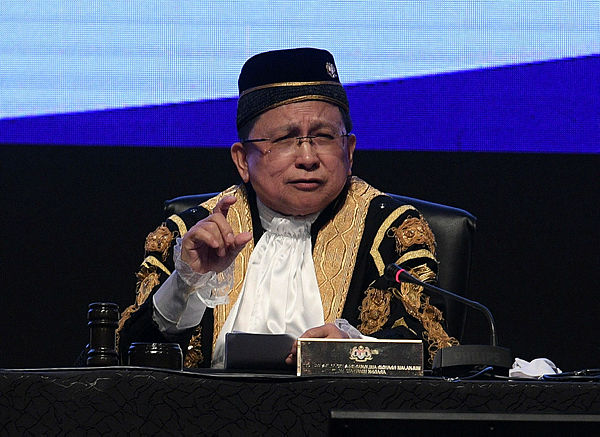KUALA LUMPUR: The Chief Justice wants the Bar Council to help the judiciary to address issues of public perception.
Chief Justice Tan Sri Richard Malanjum said today a joint collaboration is needed in an effort to address the issues concerning public perception that concerns both sides.
He gave an example whereby lawyers use their working relationship with members of the judiciary to name-drop.
“Part of the reason if you ask me why sometimes the public have a very much negative outlook on the judiciary is this — if a client, and I’m using the word if, comes and sees a lawyer and he wants to impress the client that he is somebody, he can do name-dropping.
“He can say don’t worry. I know this judge, I know that judge. That can be quite destructive to the judiciary.
“Worst still, if the lawyer then says, ‘Look, you give me so much of money, it’s not all for me. I am going to share this with the magistrate, with the judge, with the prosecuting officer, with the policemen and so forth.’ That is the worst. I just pray that it has never happened,” he said in his speech during at the launch of the United Nations Development Programme’s (UNDP) report on the international framework for court excellence here.
He expressed worry about the presumption of such a prevalent practise, especially when clients seek out lawyers who do not understand the legal system.
He hopes that the report would be a good guide to help improve the judiciary and its public standing among the people.
The report highlights seven areas which the courts can utilise as a checklist to improve its services. It was compiled in collaboration with the US-based National Centre for State Courts (NSC).
“So each of the seven areas, there must be a task force to look into it and then perhaps monthly, we can have a meeting with the heads of the taskforce to see where were heading towards.
“The biggest weakness I think of the system we are having is that there is no checklist on how we are doing. Especially on public perception. We just let it go freely and because of that, our biggest challenge now is of course negative public perception.
“So, hopefully with this report, this can be our guide to do more, so that our judiciary will be in better footing in a year or two,” Richard added.
The seven areas to assess court excellence are: court leadership and management, court planning and policies, court resources (human, material and finance), court proceedings and procedures, client needs and satisfaction, affordable and accessible court services and public trust and confidence.
Also present was resident representative for UNDP in Malaysia Niloy Banerjee, UNDP’s governance and institutional reform specialist Mir Nadia Nivin, as well as former and current judges.













